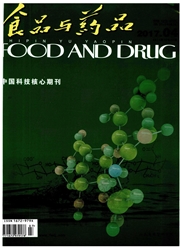

 中文摘要:
中文摘要:
糖尿病(diabetes)系一组由于胰岛素分泌缺陷及(或)其生物学作用障碍引起的以高血糖为特征的代谢性疾病,成为继心血管、肿瘤之后的第三号健康杀手.其中2型糖尿病(T2DM)占90%以上,寻找治疗T2DM的新药物成为迫在眉睫的任务.研究表明,糖皮质激素(glucocorticoid,GC)是胰岛素的拮抗激素之一,11β-羟基类固醇脱氢酶1(11β-hydroxy steroid dehydrogenase type 1,11β-HSD1)是糖皮质激素的代谢酶,可通过调节局部组织中有活性的糖皮质激素水平影响机体内的糖脂代谢,因此11β-HSD1已成为治疗T2DM的靶点.本文就11β-HSD1在T2DM中的最新研究进展进行综述.
 英文摘要:
英文摘要:
Diabetes mellitus is a panel of metabolic diseases which are caused by reduced production and/or biological dysfunction of insulin and mainly characterized by hyperglycemia. It has become the third health killer after cardiovascular disease and cancer. Since type 2 diabetes mellitus (T2DM) accounts for the vast majority of diabetes, discovering new drugs for T2DM has become an urgent task. It has been reported that glucocorticoid (GC) is one of the antagonists of insulin. 11β-Hydroxy steroid dehydrogenase type 1 (11β-HSD1) is a metabolic enzyme of glucocorticoid, which influences glucose and lipid metabolism through regulating the activities of the local tissue glucocorticoid levels. Therefore 11β-HSD1 has become a target for the treatment of T2DM. This article reviews the recent progress on 11β-HSD1 in T2DM.
 同期刊论文项目
同期刊论文项目
 同项目期刊论文
同项目期刊论文
 期刊信息
期刊信息
